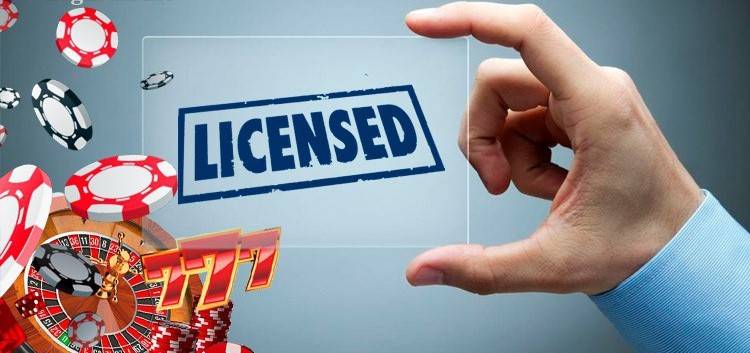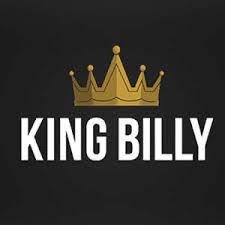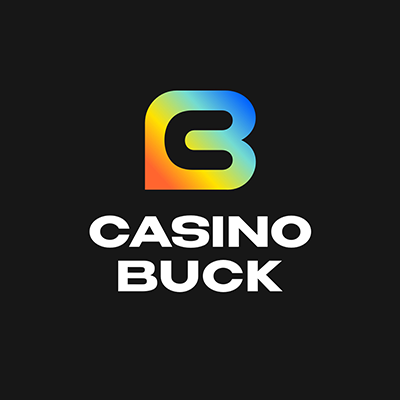In Canada, instant withdrawal casinos are legal as long as they are licensed and regulated by the government. The first legal online casino in Canada was launched in 2004, and since then, the industry has grown significantly. Legal casinos offer a wide range of games, including slots, table games, and live dealer games.
The legality of online gambling in Canada is governed by the Canadian Criminal Code, which does not prohibit Canadians from playing at casinos based offshore. However, the Canadian government strongly encourages Canadians to play at safe online casinos that are licensed by provincial governments, as these sites are subject to regulation and oversight.
Each province in Canada has its own regulatory body that oversees online gambling. For example, the British Columbia Lottery Corporation operates PlayNow.com, which offers games to residents of British Columbia. Similarly, the Ontario Lottery and Gaming Corporation operates PlayOLG.ca, which offers games to residents of Ontario.
To ensure that legal online casinos are safe and fair, they use sophisticated software to generate random results for their games. Additionally, they use secure encryption technology to protect their players’ personal and financial information. Overall, playing at a legal online casino in Canada is a safe and enjoyable experience for those who choose to do so.
Up to first $500
*New customers only. 100% match bonus based on first deposit of C$10+.
Gambling Licensing
Canadians can play online casino games, which is legal in some provinces; however, there is no direct ban on cash betting in other offshore casinos that operate in Canada.
Some sources have information that, in order to organize a legal online casino, an operator must have one or more licenses, depending on the type of gambling. They are classified as follows:
- Class 1 license – lotteries, slot machines or online casinos
- Class 2 license – sweepstakes and online betting
- Class 3 license – bingo, poker and their online versions
- Class 4 license – if the company sells software for casinos
However, keep in mind that due to the variability of gaming laws from province to province, these types are very conditional and can vary significantly.
The municipality of Quebec, Kahnawake offshore zone, deserves the most attention in the Canadian market and offers favorable conditions for gambling business registration. At the same time, it has high requirements for operators, transparency of financial statements, and business reputation, which distinguishes Kahnawake from other jurisdictions.

In the area, the licensing fee for an Canada online casino license is $40,000, along with an annual payment of $35,000 after the first year, and a fee for the financial authorities, which is a replacement for accounting records after the first year of the company starting. When registering a company in Kahnawake, the operator pays a fee of $5,000, which is necessary for testing a Kahnawake casino online. The license is valid for one year. Upon completion, the operator must pay a one-time fee of $100,000 to obtain the right to continue working under a license in this jurisdiction.
The legalization of gaming took effect in 1999, which is why a commission was established known as the Kahnawake Gaming Commission to control compliance with the regulations of gaming establishments. Control over this area is carried out on the basis of Articles Nos. 204, 206, and 207 of the Criminal Code of Canada. Each province has its own rules, so casino requirements may vary slightly.
The regulatory authority of the offshore zone is the Kahnawake Gaming Commission, which decides on the issuance of the following types of licenses:
- Interactive Gaming License – gives the right to register hosting in Kahnawake.
- Client Provider Authorization – confirms the identity of the operator who wants to organize gaming services on the zone hosting. An authorized company has the rights to provide any gambling, online casino, bookmaker or poker rooms.
- Inter-Jurisdictional Authorization – A secondary license which is issued to an operator if they have a license in another jurisdiction and want to operate under the Kahnawake authorization.
- Key Persons License – granted to persons who are engaged in the management functions of the operator-holder Client Provider Authorization.
Federal Regulation
The legal system of the country is similar to that of the United States; the federal government formulates general rules, which are then modified or supplemented through regional governments. In Canada, this foundation is provided by Articles 204, 206 and 207 of the Criminal Code.
- Article No. 204 regulates the organization of horse racing and betting on it
- Article No. 206 contains a list of prohibited gambling and related activities
- Article 207 describes the permitted types of gambling and related activities.
Furthermore, the regulation of gambling depends on the decisions of the provincial governments; there are 10 in Canada, each with its own unique gambling legislation. As a result, different regions of a country have different ages allowed to play, whereas different areas are considered to experience gambling quite differently – perhaps lotteries in some places may be permitted legally, but elsewhere, casinos and the relatively unsporting bookmaking business is permitted.
Legislation and Regulation of Casinos in Canada
In Canada, the landscape of casino gambling is governed by a combination of federal and provincial laws, with regulatory bodies playing a crucial role in maintaining fair play and promoting responsible gambling practices.
Overview of Laws Governing Casinos:
- Criminal Code of Canada: The federal Criminal Code contains provisions related to gambling activities, including casinos. It defines what constitutes legal and illegal gambling, as well as outlining the conditions under which gambling can take place.
- Provincial Jurisdiction: Gambling laws in Canada are primarily under provincial jurisdiction. This means that each province has the authority to regulate and oversee gambling activities within its borders. As a result, there can be variations in gambling laws and regulations from one province to another.
- Gaming Control Acts: Many provinces have established their own Gaming Control Acts, which set out the legal framework for the operation of casinos and other gambling establishments within the province. These acts provide guidelines for licensing, operation, and the types of games that can be offered.
Role of Regulatory Bodies:
- Alcohol and Gaming Commission of Ontario (AGCO): Responsible for regulating casinos and gaming establishments in Ontario, AGCO ensures that casinos operate in compliance with the law and maintain the highest standards of integrity. They also oversee responsible gambling initiatives and enforce player protections.
- British Columbia Gaming Policy and Enforcement Branch (GPEB): GPEB is responsible for regulating casinos and gaming activities in British Columbia. Their role includes licensing, ensuring compliance with regulations, and preventing criminal activity within the industry.
- Kahnawake Gaming Commission: Located in the Mohawk Territory of Kahnawake in Quebec, this commission regulates online gambling and issues licenses to online casinos operating within its jurisdiction. It focuses on ensuring fair play, player security, and responsible gambling online.
- Loto-Québec: This provincial government corporation is responsible for operating casinos in Quebec. Loto-Québec ensures that casinos offer a safe and secure environment for both players and employees while contributing to provincial revenues.
Ensuring Fair Play and Responsible Gambling:
- Auditing and Inspections: Regulatory bodies conduct regular audits and inspections of casinos to ensure that the games are fair, the equipment is properly maintained, and the casinos are adhering to the law.
- Player Protections: Casinos are required to implement measures such as self-exclusion programs, where individuals can voluntarily exclude themselves from gambling activities, and spending limits to promote responsible gambling.
- Anti-Money Laundering (AML) Compliance: Casinos are mandated to follow AML regulations to prevent money laundering and other financial crimes. This involves reporting large transactions and suspicious activities.
- Dispute Resolution: Regulatory bodies provide channels for players to address disputes with casinos. This ensures that players have a recourse if they encounter issues related to winnings, payouts, or other aspects of their gambling experience.
In conclusion, the regulation of casinos in Canada is a complex interplay of federal and provincial laws, with dedicated regulatory bodies working to maintain the integrity of the industry, ensure fair play, and promote responsible gambling practices. These efforts contribute to creating a safe and enjoyable gambling environment for both players and operators alike.
Review of Provincial Gambling Regulation
Alberta – gambling is legal from the age of 18. Alberta online casinos games, lotteries, and betting on horse racing are all legal.
British Columbia – gambling is allowed from the age of 19. In the land sector, casinos, betting on horse races, bingo, lotteries, and slot machines in bingo halls are all legal. Between 10% and one-sixth of business income is paid to the provincial budget. In the British Columbia online casinos, only casino games on the British Columbia Lottery Corporation (BCLC) website are legal.
Labrador – anyone over the age of 19 can play. Only the provincial government lottery is legal online; offline, you can play the lottery and bet on horse racing.
Manitoba – you can gamble from the age of 18. Online gambling is available, while the land-based sector features casinos, lotteries, and horse-racing bookmakers.
New Brunswick – a player cannot be a person younger than 19 years old. Only the local government’s lottery is legal online, whereas the land-based sector has lotteries and horse betting.
Newfoundland – you can play from age 19. Online is represented only by the state lottery; offline offers lotteries and betting at the racetracks.
Northwest Territories – play permitted from age 19 and state lottery only.
Nova Scotia – gambling is allowed from the age of 19. The province has an online lottery, as well as land-based casinos, bookmakers, and private lotteries.
Ontario – gambling is allowed from the age of 19. The online vertical has a government lottery and Ontario online casinos starting in 2022, while the land-based sector has casinos, bookmakers, lotteries, and complexes that offer mixed services.
Prince Edward Island – gambling access from age 19, too. Online, the government has only allowed its lottery; however, offline, residents can visit a rasino (a complex that consists of a casino and a racino) and private lotteries.
Quebec – a player can be a person from the age of 18. There are several lotteries and poker rooms operated by Lotto Quebec, Atlantic Lottery, and BCLC. Quebec online casinos, private lotteries, and sweepstakes at racetracks are legal in the province.
Saskatchewan – you can play from the age of 19. Legal government online lotteries and land-based casinos, bookmakers, lotteries, and racinos.
Yukon – participation in gambling from age 19. Governments and private lotteries are present; only non-profit casinos are legal.
Up to first $500
*New customers only. 100% match bonus based on first deposit of C$10+.
Online Gambling Status
The online vertical itself is regulated by the already mentioned articles of the Criminal Code of Canada, which remains unchanged, and from a legal point of view, 10 provinces have a final word about legality of the operation of land-based and online casinos. At the same time, there is no clause in the Criminal Code of Canada that prohibits online gambling.
But even if the law is violated, the authorities can only punish the owners of gambling sites registered in Canada.
Therefore, we can say that online casinos in Canada are in a gray area of the legislation. Some provinces allow online lotteries and gambling, while others allow legal private lotteries. Other games are not recognized as legal; however, there has never been a case of a person being jailed or fined for online gambling. International operators offer Canadian players the ability to make payments through third-party services and websites, so that they can play both land-based and new online casinos without any problems.
The conditions for obtaining a license
There is no concept of a license in Canada; gambling is usually offered by the authorities through Crown corporations. The government works through the commissions and corporations aforementioned.
In many provinces, lottery corporations sign agreements with private operators to provide the necessary services, removing the concept of licenses.
Service providers cooperate with private businesses and government regulators, supplying services, equipment, goods, and products.Service providers are required to register with provincial regulators.
Each province sets its own conditions and requirements for permits and contracts. For example, British Columbia offers four types of permits, which vary in the amount of revenue generated from the gambling offered. The permit is valid for up to 12 months.
Risk of playing in an illegal casino
A gambling company that does not have a license to gamble is called an illegal or scam online casino. Participation in the games is associated with an increased risk and should not be undertaken if possible. It happens again and again that winnings are withheld, not paid out, or only partially paid out. That is why it is extremely important to choose only legal online casinos in Canada with a Kahnawake Gaming license.
Advantages of Playing at Legal Casinos
When it comes to the world of gambling, choosing to play at legal casinos offers a multitude of advantages over engaging in illegal or unregulated gambling activities. These benefits extend beyond just gaming and contribute to a safer, fairer, and more enjoyable gambling experience.
Comparison between Legal and Illegal Gambling
- Security and Trustworthiness: Legal casinos are licensed and regulated by government authorities, ensuring that they adhere to strict operational standards. This translates to a higher level of security for players’ personal and financial information, reducing the risk of fraud or identity theft that may be associated with illegal gambling operations.
- Fair Odds and Transparency: Regulated casinos are required to provide fair odds on games, which are regularly audited to ensure that they are not rigged or biased in favor of the house. In contrast, illegal operators might manipulate odds, leading to unfair and unpredictable outcomes.
- Responsible Gambling: Legal casinos are mandated to implement responsible gambling measures, such as offering self-exclusion programs, setting betting limits, and providing resources for players who need assistance with managing their gambling habits. This commitment to player well-being is often lacking in illegal gambling environments.
Benefits of Regulated Casinos
- Fair Play: Regulated casinos are subject to oversight by governmental or independent bodies. This oversight ensures that the games are fair and the outcomes are random, providing a level playing field for all players.
- Guaranteed Payouts: Legal casinos are required to honor payouts and winnings according to established rules and regulations. Players can trust that their winnings will be paid out promptly and accurately.
- Privacy and Data Protection: Legal casinos adhere to data protection laws and industry standards to safeguard players’ personal and financial information. This ensures that sensitive data is kept secure and not misused.
- Support and Resources: Regulated casinos often provide resources and information to help players make informed decisions about their gambling activities. This includes information on responsible gambling, addiction support, and access to helplines.
- Diverse Game Selection: Legal casinos typically offer a wide range of games, from slots to table games and poker. This variety ensures that players can find their preferred games and explore new options.
- Community Contributions: Many legal casinos contribute to local communities through taxes, investments, and job creation. This positively impacts the local economy and public services.
- Professional Customer Support: Legal casinos usually provide efficient and professional customer support services to assist players with any inquiries or issues they may encounter during their gaming experience.
- Regulated Advertising: Legal casinos adhere to advertising regulations, promoting responsible gambling practices and not targeting vulnerable populations, such as minors.
In conclusion, choosing to play at legal casinos in Canada offers players a host of advantages that ensure a safe, fair, and enjoyable gambling experience. These benefits extend beyond gaming and contribute to a well-regulated industry that prioritizes player protection and responsible gambling practices.
Summary
Gambling is legal in Canada, and the gross revenue of the industry annually amounts to 31 billion USD. Compared to 1995, the market volume has tripled.
The gambling industry employs more than 128,000 people. Revenues to the government budget and various social programs are up to 9 billion USD annually.
Canadian provinces spend approximately 110 million USD on protecting players from addiction, which includes research, preventive measures, and treatment. Depending on the province, the percentage of addicted gamers varies from 0.7% to 1.4% of all gamers.
FAQ: Legal Casino Canada
Is online casino legal in Canada or forbidden?
The legal situation now allows a reputable online casino with a license to operate legally in Canada.
How do I get access to reputable licensed online casinos?
With our many years of experience in this industry, we only recommend reputable and legal online casinos that we have checked ourselves. Our compilation gives you an overview.
What are the disadvantages of playing illegally in casinos that do not have a license?
These casinos are illegal, and there is a very good chance that you will not be paid out, or only partially paid out, for your winnings. Additionally, your data may be misappropriated.



 I’m Leo Dealer – fastpayout-casino.com casino expert and I’m test for you all types of instant withdrawal casinos in Canada. Before becoming an expert, I worked for a long time as a dealer on cruise ships, and then in the best Canadian casinos: Fallsview Casino and Caesars Windsor Casino. So now with all my experience I check online casinos, write detailed reviews and give advice to players.
I’m Leo Dealer – fastpayout-casino.com casino expert and I’m test for you all types of instant withdrawal casinos in Canada. Before becoming an expert, I worked for a long time as a dealer on cruise ships, and then in the best Canadian casinos: Fallsview Casino and Caesars Windsor Casino. So now with all my experience I check online casinos, write detailed reviews and give advice to players.